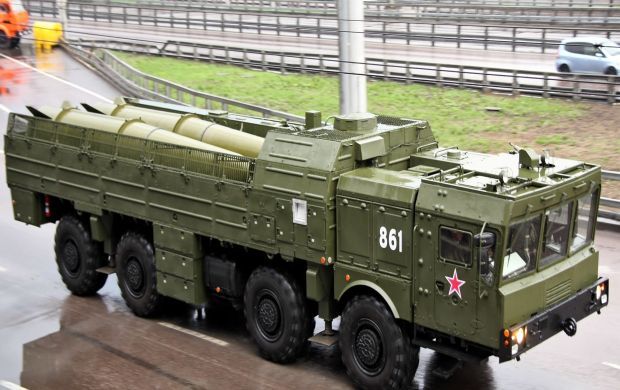
Mikhail Barabanov, a senior research fellow at the Moscow-based Centre for Analysis of Strategies and Technologies (CAST), which advises the Russian Defence Ministry, said it now looked like the Kremlin would deploy them there permanently by 2019, Reuters reported.
"By all accounts, the deployment of the Iskanders in Kaliningrad Region is now inevitable," Barabanov told Reuters, saying the missile brigade currently stationed there was using older shorter-range Tochka-U missiles slated for replacement.
The Iskander, a mobile ballistic missile system codenamed SS-26 Stone by NATO, replaced the Soviet Scud missile. Its two guided missiles have a range of up to 500 kilometers (about 300 miles) and can carry either conventional or nuclear warheads.
Read alsoHow Crimea turns into Russia's military baseRussia has twice deployed Iskanders to Kaliningrad on exercises only to reportedly later withdraw them.
U.S. military officials say the U.S.-backed shield which Russia objects to is not aimed at countering a possible Russian threat, but at shooting down missiles from what it describes as rogue states like Iran. Russia says it simply doesn't believe that explanation.
After the United States switched on the Romanian part of the shield, President Vladimir Putin warned Romania and Poland could find themselves targeted by Russian missiles.
"There's a very high chance Iskanders will be deployed in Kaliningrad," Ivan Konovalov, director of the Center for Strategic Trend Studies in Moscow, told Reuters.
"But the Iskanders are our ace card in the standoff over missile defense and NATO's activity around our borders. We need to use it cleverly. There's a big game going on and we don't want to throw it away at the start. We'll play it when Russia needs it most politically."
Barabanov said the Iskanders, once deployed to Kaliningrad, would not be armed with nuclear warheads, which are stored in other parts of Russia, but could later be if necessary.
"Deploying nuclear warheads in Kaliningrad would be a separate and serious phase of escalation," he said. Konovalov said arming the missiles with nuclear warheads would be a return to a full-scale Cold War, something he said nobody wanted.

